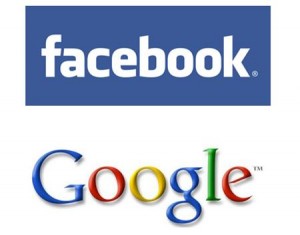
The post-Google+ world: A Facebook Developer’s Perspective
I’ve been working on the Facebook Platform since 2007. I got serious in 2009 as a part of the Facebook Fund. Since being a part of the Fund, I’ve been responsible for 80-90 million app installs on Facebook. Over the last 18 months with Momentus Media, I’ve been able to build fantastic social marketing apps for clients such as The Black Eyed Peas, Red Vines, Buick, and PETA.
Ever since Google+ arrived, I’ve had a relieved and hopeful feeling about being a social app developer, and I’ve been trying to interpret what that feeling is exactly. Below are my thoughts.
#1 I will switch to the social platform that offers the greatest viral distribution
I’ve never personally been in love with the Facebook Platform. This is likely true for any developer on any platform. I chose to work on it because it was the platform that offered the greatest opportunity at viral distribution. I would be happy to work on any other platform, but simply none offer the same level of reach that Facebook can offer you.
Since November 2009, the walls of Facebook distribution have been closing in. Every channel, notifications, requests, and stream, has either disappeared or weakened significantly. The early days of the Facebook Platform were a bit ridiculous (zombies, sheep, spam, etc…) and I don’t believe that is the way it should have stayed, but being a developer on an ever-weakening platform doesn’t feel good. It has you constantly on the look out for something better for you and your customers.
How Google+ changes things:
There may be another option! The Facebook monopoly may be over. That is a reason to be relieved and hopeful. If Google+ is able to build a user-base similar in size to Facebook and they offer strong or stronger viral channels, I would be happy to build Google+ viral functionality into apps.
At the moment, Google+ appears to be significantly less viral than Facebook. The +1 button doesn’t create a stream story (unlike the Like Button) and Circles could be viral dead ends. Integration between search distribution and social distribution could be Google+’s viral silver bullet.
#2 Until recently, Facebook really didn’t seem to care about developers
Most every Facebook Developer I know has had some drastic event on the Facebook Platform that has lowered the trust they have in the platform. Some of the hardest: automated app deletions, rapid changes to channels and policy, and bugginess
There seems to be a recent push inside of Facebook to change the way developers perceive them. Operation Developer Love being the most obvious example. It seems very likely Facebook expected significant rivals to appear (Google+) and didn’t want to have developers with packed bags ready to leave the second another formidable platform arrived.
How Google+ changes things:
Facebook will likely get even more serious about making developers happy. This would be more transparency into spam systems, and platform changes and better responsiveness to bugs.
#3 The Facebook Platform has one huge weakness: Niche Distribution
Any successful Facebook Platform developer knows how you build a successful social app. Cater to 100% of the population. The symmetrical and emotional relationships on Facebook only assume that friends have “emotional glue” connecting each other. Unlike Twitter with “interest glue” or Linkedin with “professional glue”, on Facebook you can only assume people will share content that emotionally resonates with a significant percent of their friends and their friends with only click and re-share content that emotionally resonates with them.
The key here is “emotional resonance”. The only content that can spread far and wide on Facebook is content that resonates with basic human emotions and resonates with an extremely high percentage of the population. That leaves about 99% of content out. This content is often called “boring” or “niche” content. B2B business, niche causes, and niche interests are left out while Coke, puppies, Lady Gaga, and Farmville explode.
How Google+ changes things:
Will Circles allow for niche distribution? Theoretically, yes. Circles are a very interesting combination of “emotional glue” and “interest glue”. People will share content they feel is relevant and interesting to the recipients. If I have a “Tennis Lovers” Circle, I’d be happy to share and discuss all the tennis content that would normally bore my general friend group. This should enable people to share niche content they would have previously stayed quiet about.
The big question is if Google+ will be able to spread content from Circle to Circle? It is not good enough for me to share a secret tennis tip with just my Tennis Lovers circle. For true viral distribution, that tip will need to spread from Tennis circle to Tennis circle to Tennis circle. Will interest Circles be connected with eachother or will they be viral dead ends?
Final Thoughts
It’s been 4 years since the Facebook Platform launched. It’s about time for a competitor. As a Facebook Developer, I’m hopeful that Google+ will offer a refreshing alternative as a social platform. If Google executes well, it will bring the needed competition that will force both platforms to evolve, fix the current issues with social distribution, and make social apps more relevant and powerful.
Add me on Google+ My Profile
cateogories: App Development, Apps, Blog, Facebook, Trends, Virality
